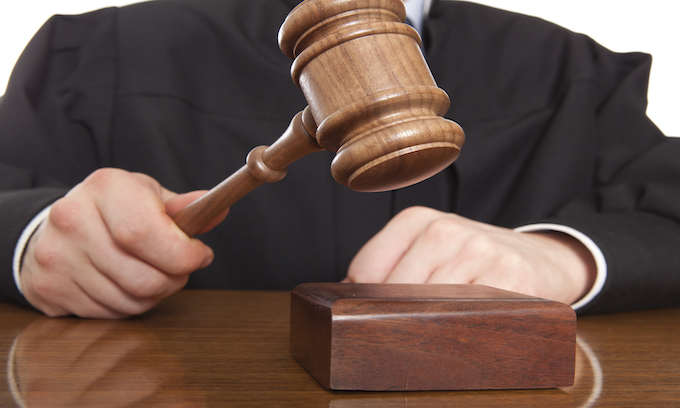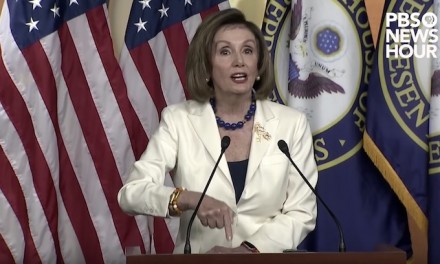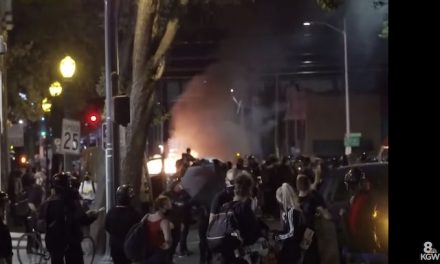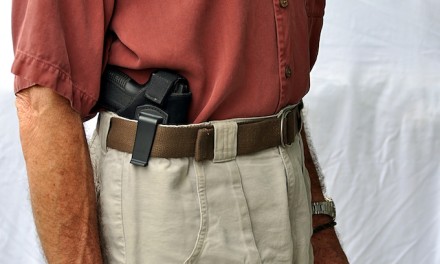A team of lawyers representing Donald Trump said Thursday their request for a neutral “special master” to review certain “privileged” documents taken by FBI agents from his Palm Beach estate would be a “modest” proposal.
But a squad of attorneys for the Justice Department countered that such a move would be “unprecedented.”
Now it’s up to a federal judge, who presided over a court hearing in South Florida Thursday, to decide whether to appoint the special master sought by the former president to review potentially privileged records seized at Mar-a-Lago during the FBI raid targeting classified documents in August. Trump had moved the records to his residence after leaving the White House last year, sparking an ongoing dispute with the federal government that has turned into a criminal investigation over his alleged mishandling of “highly classified” national defense information.
U.S. District Judge Aileen Cannon, who posed questions to both sides at a packed hearing in West Palm Beach, had previously signaled that she was inclined to grant Trump’s bid for the special master over the objections of the Justice Department. If appointed, the special master would serve as an independent party to review potentially executive- and attorney-client privileged records that were taken by FBI agents along with highly classified documents.
During Thursday’s hearing, Justice Department lawyers revealed that at least 300 classified documents had either been returned by Trump earlier this year or seized from his Mar-a-Lago estate during last month’s search. However, at least 64 sets of documents totaling 520 pages were also taken from his residence that are potentially attorney-client privileged records, government lawyers said.
Prosecutors said that Trump didn’t have a legal basis for his request for a special master because the dozens of boxes filled with presidential, government and classified documents belong to the federal government. They argued that under the Presidential Records Act, passed in the aftermath of the Watergate scandal, all such documents must be turned over to the National Archives and Records Administration immediately upon leaving the White House.
“He is no longer the president, and because he is no longer the president he had no right to take those records,” Justice Department lawyer Jay Bratt, chief of the National Security Division’s counterintelligence section, told the judge.
“There was no place at that property [Mar-a-Lago] that was authorized for the storage of these records,” added Justice Department lawyer Julie Edelstein, deputy chief of the counterintelligence section.
Trump’s lawyers countered that the former president had every right to ask the judge to appoint the special master after FBI agents rummaged through his Mar-a-Lago estate to seize dozens of boxes filled with his presidential papers and other government documents.
Attorney James Trusty called the Justice Department’s opposition to the appointment of the special master a “runaway” train that must be stopped, saying the Mar-a-Lago search violated the former president’s constitutional rights against an unreasonable search of his home. Trusty noted that federal prosecutors inserted a photo of various government documents spread out on a floor at Mar-a-Lago into its court filing that opposed the appointment of a special master. He called it a “press release.”
“They are creating a different rule for this case than they’ve ever used before,” Trusty said, alluding to special masters that were appointed by federal judges in New York after FBI agents searched the law offices of Trump’s private attorneys Rudy Giuliani and Michael Cohen.
“What is the harm that they’re so worried about?” he asked.
Another Trump lawyer, Christopher Kise, said the former president’s rights weren’t the only issue at stake. “It will give the American people a greater confidence in the integrity of this [investigation],” he said.
At the end of the hearing, Justice Department lawyers said they were willing to share the potentially attorney-client privileged documents with Trump’s lawyers. But Cannon, the judge, said she wanted to consider that procedure as part of her ultimate ruling on the special master request.
Cannon, who was nominated as a federal judge by Trump, said that rather than rule from the bench, she would issue a written order. She did not give a time frame for when she would make her decision.
Trump, who claims he had declassified all of the sensitive government documents before leaving office, has lashed out against the FBI and Justice Department over their latest probe. The FBI search warrant for his residence, which was previously released by Magistrate Judge Bruce Reinhart after news organizations petitioned him to unseal it, indicated that the Justice Department is building a potential criminal case against Trump based on allegations of unlawfully removing classified materials, committing acts of espionage and obstructing justice, including destruction of records.
©2022 The Charlotte Observer. Visit charlotteobserver.com. Distributed by Tribune Content Agency, LLC.
—-
This content is published through a licensing agreement with Acquire Media using its NewsEdge technology.



















I will not be surprised by any unlawful action when it comes to this treasonous, unethical, dishonest, corrupt, socialist Democrat Party and their political police gestapo the FBI and IRS.
This treasonous, hateful, destructive, immoral, socialist Democrat Party and their corrupt, demented puppet president has become our country’s most destructive and deadliest ENEMY!
Someone needs to gavel that troll Garland across the Potomac, right behind that midget tossed Elf Fauci.
Na// AIr drop him into the middle of shark churned waters.
Why the delay? In Democrat corrupted American politics these days, delay is just a prelude for the arm twisting time needed for a larger political self-enrichment bribe or payoff. Let’s get on with it. Only a corrupt person or organization in fear of a neutral investigator would try to deny an unbiased opinion. Just what do they have to hide,,,,or delay long enough till AFTER the midterms when the usual apologies for cheating and lying to get the worng people elected come way too late to save the true interests of THE PEOPLE. Apparently Garland views himself as the only Master of the American universe fit to decide the elections.
MORE and more i am fearing this judge is a libtard plant, designed to make it SEEM like he’s being impartial’, but ultimately will rule AGAINST trump.
“But a squad of attorneys for the Justice Department countered that such a move would be “unprecedented.”
As was the middle of the night “raid” on the home of a former president. Then why the reason needed to be revealed to the public all is blacked out without real reason except for “national security”. So the “special master” is someone that cannot be trusted is what they are saying???????